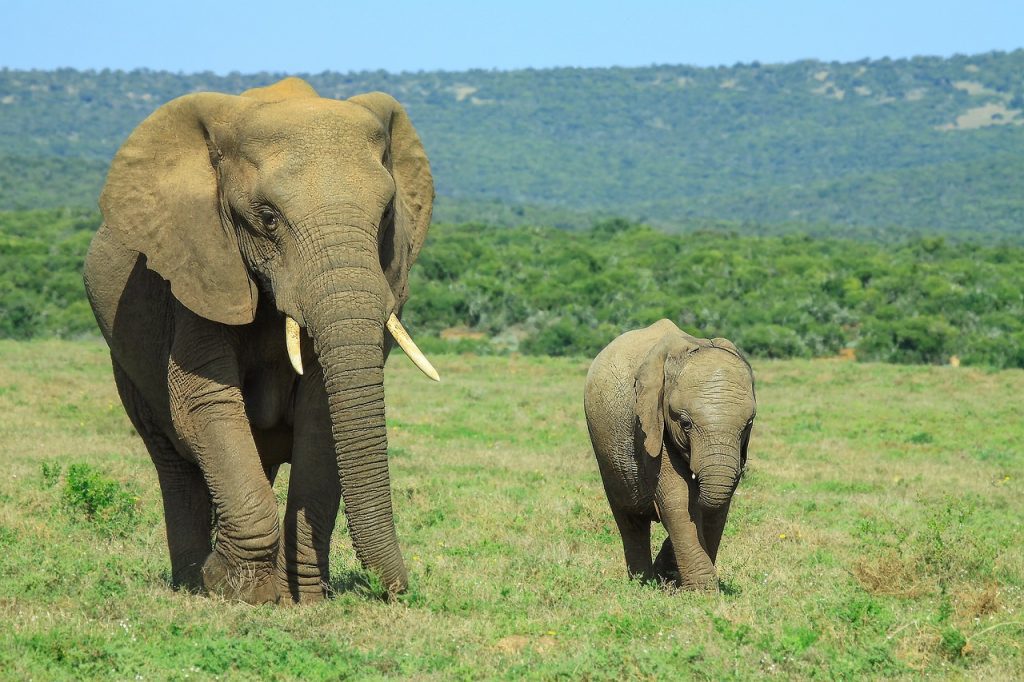The Minister of State for Environment, Dr. Iziaq Salako has reassured all that the Federal Government places high premium on conserving the environment with the launch of the 10-Year Plan (2024-2034) National Elephant Action Plan for Nigeria (NEAP).
The minister said this plan is in tandem with key priority agenda of President Bola Tinubu to unlock natural resources for sustainable development, designed for planning and monitoring elephant conservation measures that would serve as a framework for strategies and decision-making of relevant government institutions, donor agencies and non-governmental organisations.
He informed that the plan would provide necessary strategic framework for the coordination of all actors involved in elephant conservation and management, including government institutions, non-state actors, private sector partners, and the local communities living around elephant habitats.
The minister revealed that elephants are special creatures whose demonstration of finest humans traits like self-awareness, intelligence and empathy is unmatched among the animal kingdom.
He emphasised that it is common knowledge that threats to biodiversity and indeed iconic wildlife species of global significance such as elephants, is becoming endemic in Nigeria.
“Our efforts are not restricted to the confines of our borders, as we are also collaborating with other countries at the sub-regional and regional levels to fight wildlife and biodiversity loss”, he added.
Salako reiterated that the Ministerial Alliance for Ambition on Nature Finance (MAANF), which Nigeria is championing alongside other countries of the global south, intends to help secure more funding into nature-based solutions including the protection of biodiversity while the recently-signed Memorandum of Understanding with Cameroon on Bilateral Cooperation Framework Agreements on Transboundary Ecosystem Conservation and Sustainable Management of Forest and Wildlife Resources, would not only help improve national security, but also in biodiversity conservation.
“One of the key pillars of the NEAP is community involvement, which is apposite to successful conservation efforts. We will, therefore, be working more closely with communities to develop sustainable livelihoods and community conservation carbon credit schemes that could assist to improve community well-being and consequently reduce activities that are harmful to elephants and their habitats”, he further explained.
The minister emphasised that the NEAP launch is not just a ceremonial event, but a call to action to all across government and across society, and a declaration of the unwavering commitment of the government of President Bola Tinubu, and the nation to the protection and preservation of our natural heritage, adding that the Federal Government and other partner agencies are confronting poaching and illegally trade in the wildlife.

The Permanent Secretary, Federal Ministry of Environment, Mahmud Kambari has expressed his appreciation to the Wildlife Conservation Society (WCS), for facilitating the development and production of the NEAP document with the financial support of the European Union and Wild Africa Fund (WAF) for their unflinching support to the launching of the document.
Kambari reminded stakeholders that the survival and prosperity of Nigeria’s elephants for future generations is not government business alone, but also that of society.
“Our contribution to raising awareness in our various communities will go a long way in curbing the reduction in our elephant populations”, he said.
The Chairperson, Elephant Protection Initiative (EPI) Leadership Council and a former Minister of State for Environment, Mrs. Sharon Ikeazor, said Nigeria is one of the relatively few countries in Africa that has both forest and savanna elephants, lamenting that both are now much depleted.
Sharon called on stakeholders to reaffirm their commitments to the cause of elephant conservation.
She appreciated the Minister of Environment, Balarabe Lawal and Minister of State for Environment, Dr. Iziaq Salako, Department of Forestry and Head of the Convention on International Trade in Endangered Species of Wild Fauna and Flora (CITES) for their efforts in the conservation of biodiversity.
The Country Director, Wildlife Conservation Society, Andrew Dunn, is author of the National Elephant Action Plan.
Dunn said the plan has eight main objectives ranging from law enforcement to conservation education, to sustainable livelihoods.
“It’s quite a comprehensive document. There are a lot of actions in there, including the importance of reducing conflicts between farmers and elephants. That’s a serious problem.
Nigeria is unthinkable without elephants. It’s time we came together and protect the last of our elephants.
It would be criminal, sad and catastrophic, if we lose them”, Dunn said.
An environmentalist with the Africa Nature Investor (ANI), Tunde Morakinyo, who was represented at the event by Wilson Ogoke, called on stakeholders to support its effective implementation to ensure that Nigeria’s elephant population survives well into the future.
On his part, the Conservator-General, National Park Service, Muhammed Goni, who was represented by Hauwa Mangga, lauded the initiative, referring to it as a welcomed idea while the Director of State Engagement, Elephant Protection Initiative Foundation, Korogone Sinagabe called on members of the public for support to safeguard, prevent poaching, and foster an environment where elephants or wildlife and communities would flourish while the Head of Cooperation, the European Union delegation to Nigeria, Ruben Alba has restated the union’s commitment at supporting Nigeria’s conservation efforts, urging the government and other stakeholders to join forces in safeguarding elephants for future generations.



